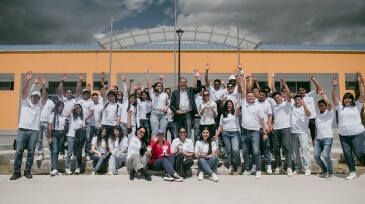Data & Analytics
Venezuela’s oil recovery will depend on restoring disciplined, reliable day-to-day operations by stabilizing existing assets, fixing operational failures, and using practical tools to rebuild predictable production.
The free, virtual program is designed to help participants build data-driven capabilities for the energy industry.
Digital transformation in oil and gas depends less on adopting advanced technologies and more on maturing data so people and processes can reliably convert raw information into aligned, asset-level value.
-
Digital transformation in the oil and gas industry is likened to a major home renovation—requiring a clear vision, skilled collaboration, patience, and investment in lasting solutions. Though the process is challenging, the end goal is an improved, future-ready operation.
-
The SPE Reservoir Technical Discipline and Advisory Committee invite their Reservoir members worldwide to participate in a new survey aimed at assessing the current state of reservoir engineering across industry and academia. Deadline is 21 July 2025.
-
Mineralogical, mechanical, and flow complexities in major US shale plays are tightly linked, making traditional 1D modeling inadequate. Emmanuel Obasi, SPE, addresses this with a physics-informed ML approach detailed in this article.
-
Secondary and tertiary efforts are critical for sustaining the productive lives of unconventional plays.
-
The SPE Ecuador Section brought the excitement of robotics and energy education to life through an intensive 1-day Energy4me training, reaching 1,324 children from rural Quito.
-
The university will join a small number of institutions in the US offering an undergraduate degree focused exclusively on artificial intelligence.
-
Gautam Swami, manager of corporate R&D at NOV and SPE member, shares his experiences in building a career in oil and gas R&D, discusses how innovation is shaping the industry, and offers guidance to young professionals.
-
The multiplayer training platform developed by the Texas A&M Mary Kay O'Connor Process Safety Center and EnerSys Corp. uses artificial intelligence and gaming technology to simulate pipeline emergencies.
-
The report highlights the fast evolution of AI with better performance, bigger investment, and rising global optimism. But job concerns, education gaps, and environmental costs reveal a more complex picture.
-
Integrating financial and HR expertise boosts profitability, reduces operational risks, and enhances long-term planning—empowering HR to tackle sector-specific challenges like budget constraints and talent shortages more effectively.













